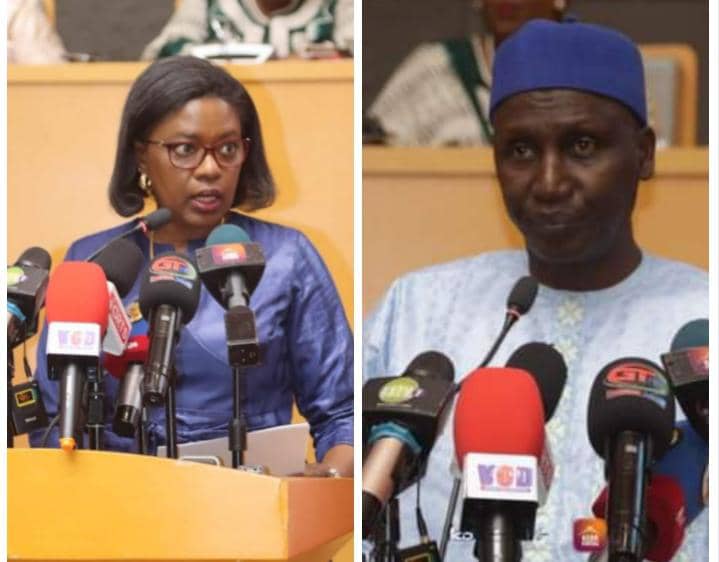Gambia Records 575 Incidents of Gender-Based Violence in 2023

By Buba Gagigo
Ndeye Rose Sarr, the UNFPA representative in The Gambia, has disclosed that the country grappled with 575 cases of Gender-Based Violence in 2023.
Speaking at the official commencement of a three-day International Training on Caring Territories for Women Victims of Violence at the Sir Dawda Kairaba Jawara International Conference Center in Bijilo, Ndeye Rose Sarr highlighted the persistent challenges of violence against women in The Gambia. She emphasized that the issue extends beyond mere statistics, with one in every four women experiencing sexual or physical violence at some point in her life globally.
According to data from the National Gender Management Information System established by the United Nations and the Ministry of Gender, Children, and Social Welfare in The Gambia, the reported cases of GBV occurred throughout the country, with 53 cases in URR, 45 cases in CRR, 265 cases in the West Coast region, and 145 cases in the Banjul area, including Kanifing.
“In the Gambia, like many countries at the global level, the challenges of violence against women persist, extending beyond mere statistics. Shockingly, one in every four women has experienced sexual or physical violence at some point in her life. Aligning unfortunately closely is the global rate. Disturbingly data from the National gender management information system that the United Nations along with the Ministry of Gender, Children, and Social Welfare put in place here in the Gambia, in 2023, We have registered 575 cases of gender based violence. And these cases happen all over the country in all local governments. In the URR, we had 53 cases, in CRR 45 cases, in the West Coast region 265 cases and in the Banjul area inclusive of Kanifing 145 cases,” she said.
Mrs. Sarr described these cases as ‘underreported’ and encompassing various violent acts, including rape, sexual assault, defilement, sex trafficking, intimate partner violence, and physical assault. Regrettably, none of the survivors has been able to access justice, underscoring the urgent need to implement existing legislation protecting women and girls to prevent further abuse.
“Unfortunately, none of the survivors has been able to access justice, serving as a stark reminder of the pressing need for immediate action to implement already existing legislation that protects women and girls and prevent their abuse. The time to act is now because one woman or girl facing abuse is definitely one woman or girl too many. Based on previous reports, the majority of these cases are perpetrated against young girls, believe it or not, as we reflect on this at the training workshop, it is crucial to shed light on the culture of violence persisting in the country. The Daily Report On Violence Against Women, men and girls, underscores the urgency for change,” she added.
In response to the alarming statistics, Mr. Baboucarr Bouy, the Minister of Public Service, Administrative Reforms, Policy Coordination, and Delivery, emphasized the importance of addressing gender-based violence within the context of social and cultural structures. He cautioned against being confrontational and highlighted the need for a problem-solving perspective, emphasizing that the debate should focus on how to effectively tackle the issue.
“I want to caution that the issue of gender-based violence if it is to be addressed from a problem-solving perspective, we need to be very mindful of the context within which it has to be tackled. And I’m saying this because the data that has been shared with us by the UNFPA representative has amply demonstrated the fact that there is a problem, and the debate is not about whether the problem exists or not. The debate should be about how we deal with it. And my little advice is, let us be mindful of the context within which we are going to deal with this issue. We need not to be confrontational. But the issue can be tackled using our social and cultural structures to deal with them,” Minister Boye said.

